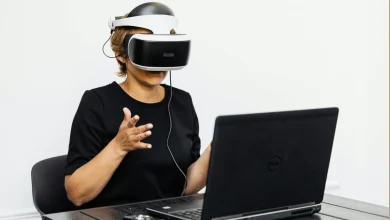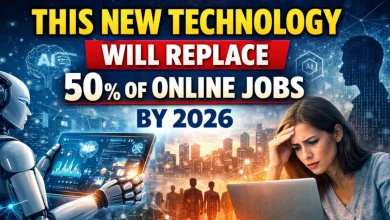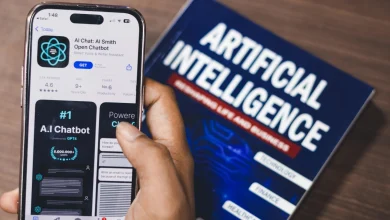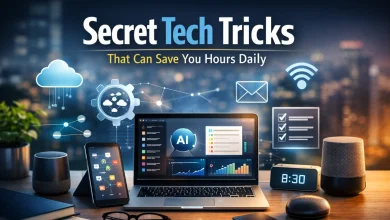
In 2025, artificial intelligence (AI) is no longer just a buzzword or futuristic concept—it’s a powerful force shaping every corner of our daily lives. From the moment we wake up to the time we go to bed, AI technologies silently work behind the scenes, making our routines smoother, smarter, and more personalized. Whether you’re interacting with a voice assistant, receiving tailored health recommendations, or enjoying a personalized shopping experience, AI is likely involved.
This article explores how AI is integrated into everyday life in 2025. We will break down complex ideas into simple, clear language and offer real-world examples to show just how impactful this technology has become.
1. Smart Homes: The AI-Powered Living Experience

AI has revolutionized our living spaces. Smart homes in 2025 are equipped with systems that learn your habits and preferences. Your lights, thermostat, music, and even coffee machine can now adjust automatically based on your behaviour.
Example: AI-powered systems like Google Nest or Amazon Alexa recognize your morning routine and begin adjusting temperature, lighting, and even starting your favourite playlist as soon as your alarm goes off.
Security: Home security systems use facial recognition and motion detection, sending alerts directly to your phone if something unusual happens.
2. Personalized Healthcare and Wellness

AI in healthcare has taken a big leap forward. Wearable devices and mobile apps now use AI to monitor your health in real time.
Smart wearables: Devices like Fitbit and Apple Watch analyse your heart rate, sleep patterns, and activity levels, offering health tips tailored to your body.
Telemedicine: AI chatbots assist doctors by analysing symptoms, recommending next steps, or even scheduling appointments.
ALSO READ: 10 Mind-Blowing Tech Trends Dominating the World in 2025
Mental health: AI-powered apps like Warbot offer emotional support and cognitive behavioural therapy suggestions based on your daily mood inputs.
3. Education Gets Smarter
Learning has been transformed thanks to AI. In 2025, students no longer rely solely on textbooks and lectures.
Adaptive learning platforms: Tools like Khan Academy and Coursera use AI to personalize lessons based on each student’s strengths and weaknesses.
Virtual tutors: AI chatbots help answer questions and provide feedback, helping students learn at their own pace.
Classroom integration: Teachers use AI analytics to identify students who might need extra help or who are excelling and need more challenging material.
4. AI in Transportation
Getting from point A to B has never been easier—or smarter.
Autonomous vehicles: Self-driving cars are increasingly common in urban areas, using AI to navigate traffic, detect obstacles, and ensure passenger safety.
Smart traffic systems: AI algorithms manage traffic lights and flow to reduce congestion.
Ride-sharing: Apps like Uber and Lyft use AI to match riders and drivers efficiently, predict demand, and suggest pricing.
5. Finance and Money Management
AI is making personal finance more accessible and efficient.
AI budgeting apps: Tools like Mint or Cleo analyse spending patterns and offer personalized financial advice.
Fraud detection: Banks use AI to detect unusual transactions in real time, protecting users from fraud.
Stock trading: AI bots assist investors by analysing market trends and making data-driven predictions.
6. Shopping and Consumer Behaviour
Retail has undergone a major shift thanks to AI.
Personalized recommendations: Online stores use AI to suggest products based on browsing history and preferences.
Smart checkout: Amazon Go stores use AI to let customers shop without standing in line—just grab and go.
Chatbots: AI chat agents assist with purchases, returns, and product questions, offering instant help 24/7.
7. Entertainment and Media
What we watch and listen to is increasingly influenced by AI.
Streaming services: Platforms like Netflix and Spotify use AI to recommend content based on your viewing or listening habits.
Content creation: AI is even being used to write songs, generate videos, or create art.
Gaming: AI opponents in video games are smarter and more responsive, creating more realistic experiences.
ALSO READ: AI Is Taking Over Jobs: What Can You Do to Stay Relevant?
8. AI in the Workplace
AI is transforming how we work, making tasks easier and increasing productivity.
Automation: Repetitive tasks like data entry or scheduling are handled by AI tools.
Recruitment: AI scans resumes and matches candidates to job descriptions.
Virtual assistants: Tools like Microsoft Coplot and ChatGPT help employees draft emails, write reports, or manage meetings.
Conclusion
Artificial intelligence is no longer a thing of the future—it’s an everyday companion. From the home and school to hospitals and shopping malls, AI is quietly shaping a more efficient, personalized, and convenient world. As we continue through 2025, one thing is clear: AI is not just changing our routines—it’s improving them.
Whether you’re a tech enthusiast or just someone curious about how your daily life is evolving, understanding the role of AI can help you embrace the future with confidence.
Frequently Asked Questions (FAQs),
AI stands for Artificial Intelligence, which refers to machines and software that can learn and make decisions. In daily life, AI helps automate tasks, personalize experiences, and improve services like healthcare, education, and shopping.
Yes, smart home systems use advanced encryption and security protocols. However, it’s important to regularly update software and use strong passwords.
3. Can AI replace human jobs?
AI may automate some tasks, but it also creates new opportunities and roles, especially in tech development, data analysis, and AI system management.
AI monitors vital signs, offers health suggestions, supports doctors in diagnosing illnesses, and even provides mental health assistance through apps.
Not at all. Most AI systems are designed to be user-friendly, intuitive, and require minimal input to operate effectively.





4 Comments